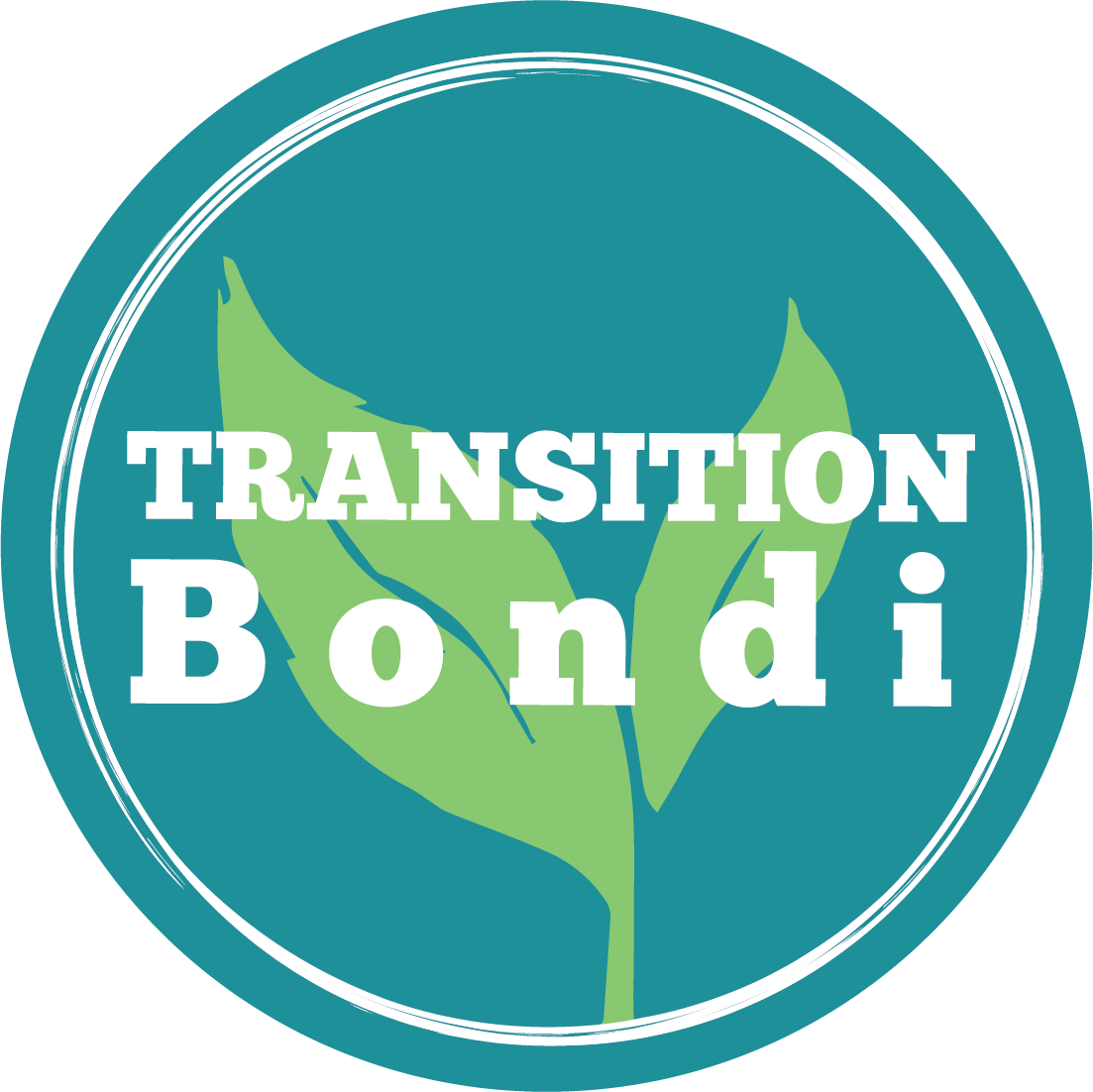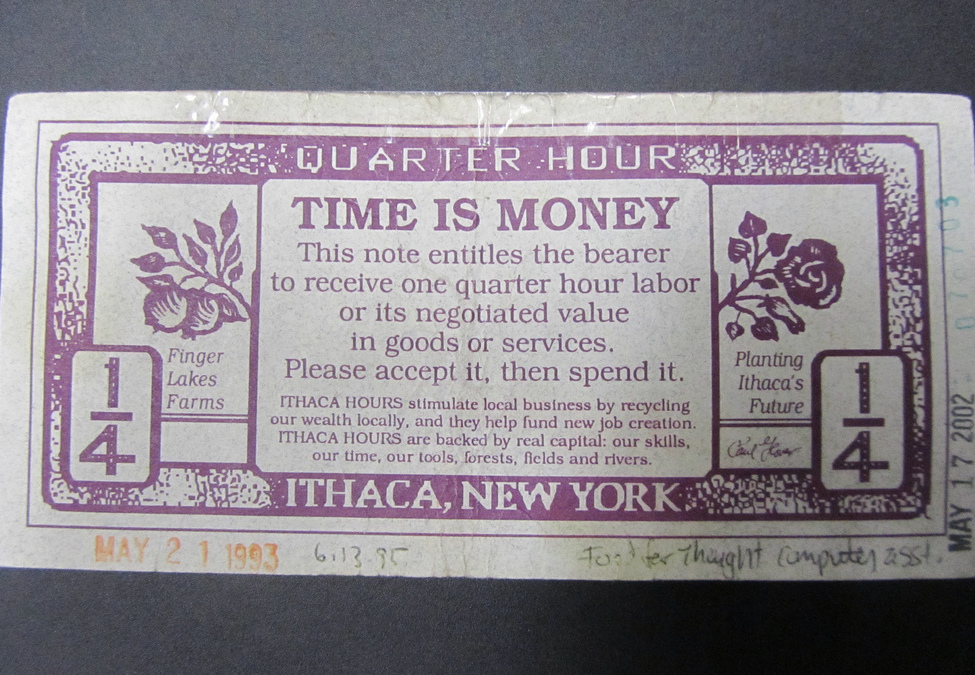Q&A: Annette Loudon Talks Local Economies
Interviewed by Serena Renner
To preview our next Film & Feast on 15 March – when we’ll be screening the inspiring film Tomorrow (Demain) in partnership with SydneyLETS – Transition Bondi caught up with our guest speaker Annette Loudon to get a primer on local and shared economies and why we should all give the community trading platform SydneyLETS a try.
What is wrong with the current economic system that makes local and shared economies desirable, or even necessary, today?
The way most of our money is created – by banks, for profit – systematically drives unsustainable economic activity, and increases inequality. Money is created out of thin air, and since the economy must grow, resources are extracted to provide goods and services to repay loans and interest. The system requires losers – Can’t pay the mortgage? Lose your house – and occasional national and global economic depressions. I’m sure we can do better than this.
How did SydneyLETS kick off and what attracted you to the platform?
There have been at least two waves of LETS in Sydney. The current version was started by Jacqui Kennedy, I think around 2005. SydneyLETS is part of a national and international trading network. So while most traders are local, we have the option to trade with people in groups around Australia and around the world via the Community Exchange System. When I stumbled across LETS, I thought it sounded like a system that valued people and the environment. It’s simple, and it attracts clever, creative, compassionate people who are open to trying something new.
How does the platform work, and what’s the guiding philosophy behind it?
SydneyLETS is a trading system that uses a local currency called Operas. Transactions are handled by our online Community Exchange System (CES). You can list your offerings (goods or services) on the CES. It’s like our own little Gumtree or online classifieds. Someone may then contact you to take you up on your offer. After you complete the trade, you log in to charge the recipient’s LETS account via the CES. It’s very much like online banking, but with local currency instead of money.
When you sign up your account starts at zero. If you earn first, your balance will go up to a positive value; if you spend first, it goes into negative. We strongly encourage people to jump in and spend right away. No interest is charged on negative balances. If everyone waits to earn first, no trading is ever going to occur. As you start meeting people, it’s easier to earn. Sydney members prefer to trade our time equally at 35 Operas per hour.
Treating all services as equal in terms of cost is an extra psychological barrier for many people, but it can be very rewarding if you can overcome it.
Is this the same thing as “Timebanking“?
Yes, it’s very similar to Timebanking. The CES supports Timebanks as well, which just value hours as hours instead of credits. LETS groups are charging a certain amount of credits an hour, which is a bit more familiar.
How do alternative economic networks such as LETS tie in to the larger “sharing economy” exemplified by tech-based platforms such as Airbnb and Uber?
Airbnb and Uber are focussed on maximising profit. Some aspects of the way they operate can be seen as insensitive to workers, customers and communities. LETS is focussed on maximising opportunities for people to use their skills and help each other. There is a big focus on sharing, and a lot of interest in living more sustainably.
What kind of response or impact have you witnessed in Sydney and Illawarra? Any particularly powerful anecdotes of LETS changing peoples’ lives?
I’ve noticed a profound shift in many participants over the years. When people first join, they tend to be very suspicious, asking will they be ripped off? What if everyone takes and no one gives? Is it a tax dodge? Many people are uncomfortable with the idea of trading their time at equal value with people who have skills that are traditionally considered lower-value. They withhold their more valuable offers for fear of not getting enough value in return.
After a few trades, however, the trust starts to build and the generosity starts to kick in. I often joke that you’re trading a pot of jam one minute, and handing over the keys to your car or a holiday house the next.
Over time, some people can’t even be bothered entering transactions into the system. They don’t feel the need to track everything since they get satisfaction from doing things for other people. They relax and wander off into the gift economy. It’s a beautiful transformation!
What have been the main challenges with the network?
Sydney has lost momentum in recent years. It’s a struggle to get critical mass again, but we’re rebuilding slowly. I think we’d have a lot more trading happening if we could find a way to provide essentials like food and accommodation. We’re also trying to get our online system redeveloped. A lot of progress has been made, but without funding, the project is moving slowly.
What’s next for SydneyLETS and how can the Transition Bondi community get involved?
This year we’re focussing on knowledge-sharing and producing quality goods inside the system. Knowledge sharing is happening by running workshops, and by recruiting support to bootstrap social enterprises. For quality goods, we’re thinking of things that everyone will want to spend their Operas on, but that don’t cost anything (or cost very little) in $AUD. For example, home-grown food, honey, seedlings, preserves, art, upcycled furniture and clothing. If any of that sounds interesting to you, we’d love you to sign up and start trading with us!


Thanks Chloe! Glad you liked it:)
Each time I hear about the workings of LETS I understand a little more. As a low tech user and non mathematical thinker it doesn’t come easy though the concept of sharing time and offering ones resources and strengths appeals to my political sensibility.
Thank you for comprehensive interview